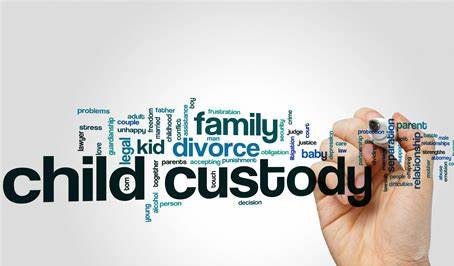How do I apply for child support? The foundation for this exciting story has been laid. It allows readers to experience an original, richly detailed story from the beginning. When you study this manual you will receive a wealth of knowledge and practical advice to help you navigate the complexities of the legal system. and advocate effectively for your child’s best interests.
On this page you will learn about the different types of childcare arrangements. Factors Influencing Child Care Decisions and the Legal Age of Consent to Care for Children We will guide you through the process of gathering evidence and documents to support your case and provide advice on finding a qualified family lawyer.
Find information about childcare
Child care is the legal right and responsibility to decide where the child will live and who will take care of the child. Understanding the Different Types The nature of guardianship and the factors to consider are very important to anyone involved in a child custody dispute.
If You Are Facing a Child Custody Dispute You need to understand the legal process. The same goes for the detailed timelines listed in the Foreclosure Process Timeline. Filing a child care claim requires careful attention to deadlines and supporting documents.
A thorough understanding of the law and seeking professional advice is critical to a smooth and successful outcome in your case.
Types of child custody rights How to apply for child custody rights?
- Physical Custody: Refers to the place where the child primarily lives. may be the only one (single parent) or joint (both parents share physical time with the child)
- Legal Custody: Includes authority to make child support decisions. Education including medical care and religious instruction Legal guardians can be sole or joint.
- Shared Custody: Both parents share physical and legal custody. And both parents play an important role in the child’s life.
- Sole Custody: Physical or legal custody of one parent with limited or no participation in raising the child with the other parent.
Factors to consider when making childcare decisions
Courts consider a number of factors when determining child custody, including:
- The best interests of the child (preliminary consideration)
- children’s wishes (If they are old or already old)
- Ability to create a healthy, stable and nurturing environment for parents.
- Relationships between parents, children and each other
- Has a history of domestic violence or child abuse
- Source of funds for both parents
Age of Parenting Consent
The legal age for guardianship consent varies by jurisdiction. In most countries, it is usually 18 years old. Some countries allow minors to make their own decisions about child custody under certain circumstances.
Filing for child custody can be a complicated process. However, it is important to know your rights and options. If you are facing foreclosure, there are steps you can take to avoid losing your home. For more information on how to avoid defaulting, see How to Avoid Foreclosure. Once your financial issues are resolved, you can seek child custody with the help of an experienced attorney.
You are preparing to seek child custody
It is important to prepare for litigation. Parenting issues are no exception. Gathering evidence Finding the right attorney and preparing for court hearings are important steps to ensure the best outcome for your child.
Navigating complex parenting issues can be difficult. It is important to understand the legal process and seek expert advice. If you need to repossess your mobile home. It is important to understand the specific rules that apply to this type of property.
The laws that apply to rental properties are different from those that apply to regular rental properties, so consulting an experienced attorney is important to protect your rights, and your attorney will ensure that the outcome is fair. With the right legal assistance, you can navigate child custody and removal proceedings successfully.
Gather evidence and documents
Evidence is important in child custody cases. They can support your opinion of the child’s best interests and help you make a strong case. Common proofs include:
- Medical records
- School reports
- Social media posts
- Emails and messages
- Oath of office
- Find a certified family law attorney
A qualified family law attorney will provide valuable advice and assistance throughout the child custody proceedings. Find a child custody attorney who is experienced and comfortable working with you.
However, as this article explains, understanding the complex child care law can be a daunting task, as can the complex retail law. It has similar issues. To navigate this legal maze, you need to thoroughly understand the details and the relevant laws.
Comply with the Children’s Rights Act and the Commercial Returns Act. Individuals can better protect their rights and interests.
Judicial preparation and mediation
If negotiations and mediation fail to reach an agreement with the other parent. Your case will go to trial. It is important to be prepared for court hearings and mediation. This includes:
- Prepare professional attire
- Right away
- Know your business inside out.
- Respect the court and the other parent.
judicial system
The court process for child custody cases can be complex and emotional. It is important to understand the role of a judge or a judge. Procedures for presenting evidence and questioning witnesses and how child custody decisions are made
Duties of the judge or magistrate
The judge or juvenile court judge is responsible for making decisions that are best for the child. All evidence provided will be considered. Including the testimony of expert witnesses and the wishes of the children (If the child is old enough to express an opinion) The judge or judge will consider different factors. That is also written in the state child care law.
Prepares evidence and cross-examination
Those involved in child custody cases have the right to present evidence and question witnesses. Evidence may be provided in the form of testimony, documents, or other documents. Witnesses may be called to give evidence of observations, opinions, or knowledge related to children and related parties.
How to set up a system
Custody decisions are made with the best interests of the child in mind. The judge will consider all the evidence presented and the various factors. specified in your state’s child custody laws. These factors may include the child’s age, health and mental health. The relationship between the child and each parent The ability of each parent to provide their children with a strong, loving home History of family violence or child abuse
the law of repentance
Compliance with court orders regarding child support is important to maintain stability and avoid legal errors.
Changes in parental authority
Conditions may change and maintenance rules may need to change. Appeals to the court by providing evidence of significant changes affecting the child’s welfare include:
- Changes in parental rights to care for their children
- transfer of parents
- Evidence of abuse or neglect
- Making parental rules
If one parent violates the custody order the other parent can take legal action to enforce it. Options include:
- He was charged with contempt of court
- Police are asking for help in finding the child.
- Get a restraining order to prevent the other parent from interfering with your child’s custody.
- Parent relationship and support
When Custody is Determined Effective parenting is important It involves:
Artikel communication, decision-making and responsible parenting strategies.
Use a parent meeting app to increase communication and track expenses.
Seek the help of family, friends, and therapists to navigate the challenges of parenting.
Remember that the welfare of the child is the most important thing. By following court orders Review housing options and enforcement. and ask for help Parents can be sure that their children will be raised in a safe and nurturing environment.
Conclusion: How to care for children?
By the end of this guide you will have a better understanding of how to apply for child custody and the legal process involved. Remember that your child’s best interests come first. By following Artikeld’s advice in this guide, you will increase your chances of finding good advice. that puts the needs of our children first




